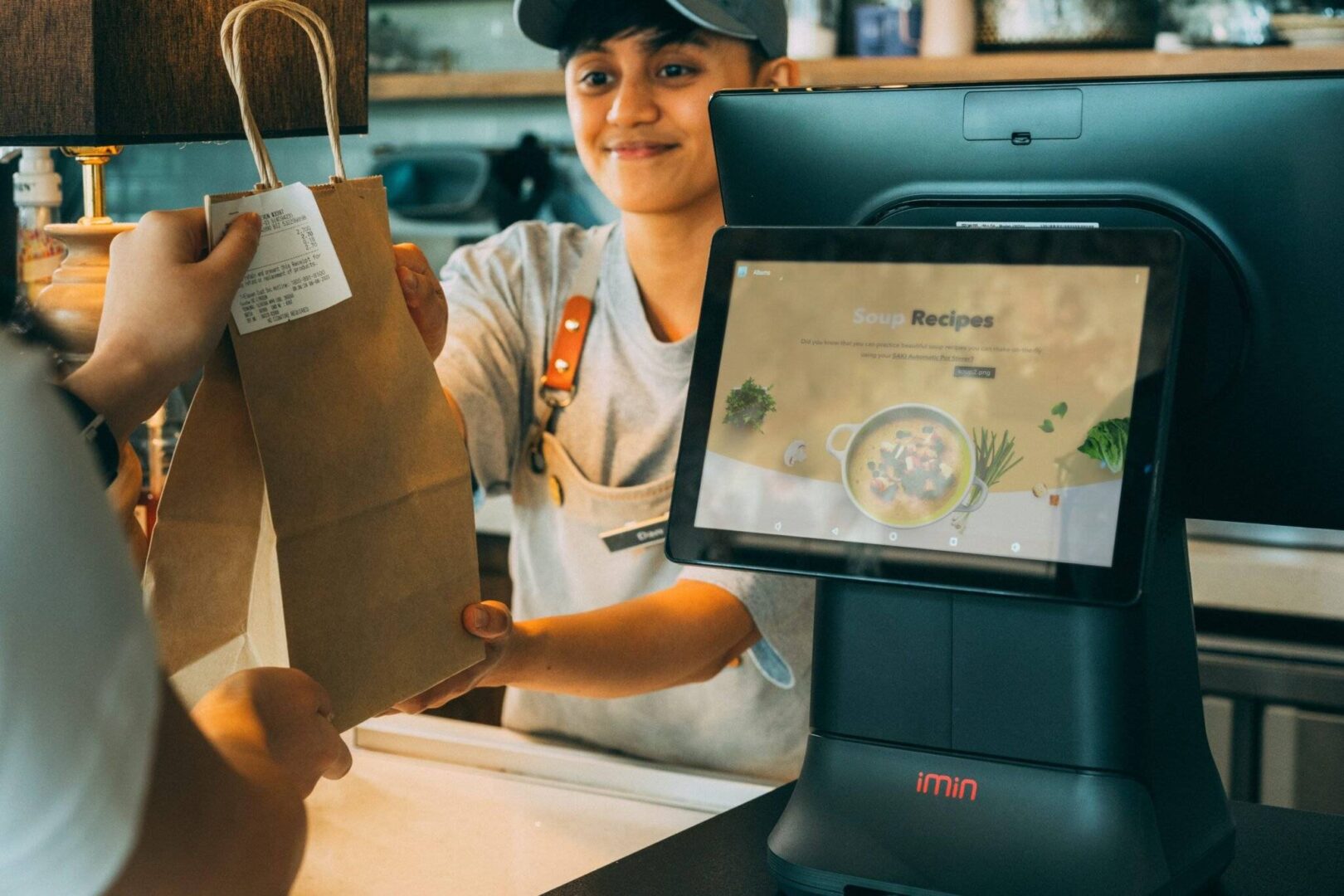The quick service restaurant (QSR) industry has changed a lot lately, and technology has helped. One big change is the use of Quick Service Restaurant POS. These systems have made it easier for restaurants to work and connect with customers. They offer tools to make things run smoothly and make customers happy. In this article, we will explore how POS systems are transforming the QSR industry and why they are becoming increasingly popular among businesses of all sizes. From improving order accuracy to increasing efficiency and reducing costs, we will examine how these advanced systems offer a range of benefits that help restaurants stay competitive in today’s fast-paced market.
Quick Service Restaurants (QSRs) and POS
Quick Service Restaurants (QSRs) use point of sale (POS) systems to speed up their service. POS systems can handle everything from taking orders to processing payments quickly. This helps QSRs improve their efficiency and customer experience. POS systems reduce wait times and errors by taking orders quickly and accurately. They also send orders directly to the kitchen, so staff don’t need to write them down or talk to each other. POS systems also offer reporting features that help QSR managers track sales, inventory, and employee performance. This information can be used to make better business decisions.
Benefits of POS Systems in QSRs
In this day and age, it’s crucial for quick service restaurants (QSRs) to have a point of sale (POS) system in place. The benefits of having a POS system are undeniable. Firstly, these systems can greatly improve efficiency in QSRs by streamlining the ordering process, eliminating human error, and reducing wait times. This is especially important during peak hours when lines can get backed up and customers become impatient.

Secondly, POS systems provide valuable data that can be used to make informed business decisions. These systems track sales trends, inventory levels, and customer behavior which allows QSRs to adjust their menus and pricing strategies accordingly. Additionally, POS systems simplify accounting processes by providing detailed transaction logs that can be easily exported to accounting software.
Finally, implementing a POS system can lead to increased revenue for QSRs.
Power Up Your Business with Secure, Affordable,
and Efficient Payment Solutions
Features of Modern POS Systems
Modern POS systems have revolutionized the way businesses operate. These point of sale (POS) systems have become an essential tool for retailers, restaurants, and other service providers to manage their operations efficiently. The latest POS software is designed to help businesses streamline their transactions and improve customer experiences.

One of the significant features of modern POS systems is the ability to accept multiple payment methods. Customers can now pay through various channels such as credit/debit cards, mobile payments, and online payments. This feature makes it easier for customers to make quick transactions without worrying about carrying cash or checks. Additionally, modern POS systems provide a secure platform for processing these transactions by encrypting sensitive data like card numbers.
Another important feature of modern POS systems is inventory management. With real-time inventory tracking, business owners can monitor stock levels quickly and easily.
Examples of Successful Implementation
A quick-service restaurant (QSR) relies heavily on its point-of-sale (POS) system to improve efficiency, reduce costs and enhance customer satisfaction. However, the success of a QSR POS implementation depends on several factors such as employee training, hardware and software compatibility, and user-friendly interfaces.

One successful example of QSR POS implementation is Starbucks. The coffee giant revolutionized the industry by introducing mobile ordering and payment through their app. This allowed customers to skip long lines and receive their orders quickly. In addition, Starbucks implemented a cloud-based POS system that enabled them to collect valuable data about customer preferences and behaviors. This helped them personalize marketing efforts, increase sales, and improve the overall customer experience.
Another successful QSR POS implementation is McDonald’s self-order kiosks.
Challenges and Potential Solutions
The quick-service restaurant (QSR) industry is facing several challenges when it comes to their point of sale (POS) systems. One major issue is the need for faster and more efficient transactions, as customers expect quick service in a QSR setting. Additionally, many QSRs struggle with outdated POS technology that can be slow and unreliable.
To address these challenges, QSRs can consider implementing cloud-based POS systems. These systems offer faster processing times and real-time data analysis, which can help restaurants make informed decisions about menu offerings and inventory management. Cloud-based POS systems also offer greater flexibility, as they can be accessed remotely from any device with internet access.
Another potential solution for QSRs is to invest in mobile POS devices for their staff members. This would allow employees to take orders directly at the table or in line, reducing wait times for customers.
Future of QSRs with POS Technology
QSRs have been around for decades, but in recent years, they have undergone a significant transformation. With the advancements in technology, QSRs are now adopting point-of-sale (POS) systems to streamline their operations and enhance customer experience. POS technology has revolutionized the way QSRs operate and interact with customers.

The future of QSRs with POS technology looks bright as more restaurants continue to adopt this technology. With POS systems, restaurant owners can track sales in real-time, manage inventory efficiently, and minimize errors that come with manual processes. Additionally, customers can place orders and pay for them using self-service kiosks or mobile devices without waiting in long queues.
Moreover, integrated POS systems provide management teams with access to data analysis tools that help identify trends and optimize menu offerings based on customer preferences.
Conclusion: Revolutionizing the Industry with POS
The QSR (Quick Service Restaurant) industry has been revolutionized by the introduction of Point of Sale (POS) systems. These systems have been instrumental in streamlining operations, improving service delivery and enhancing customer experience. United Banc Card of TN is one such company that has played a vital role in this transformation.
Through its innovative POS solutions, United Banc Card of TN has enabled QSR owners to manage their businesses more efficiently. Its robust hardware and software components allow restaurant operators to easily track sales, inventory and employee performance. The results are enhanced productivity, reduced costs and improved profitability for the business owner.
In conclusion, the QSR industry can no longer ignore the benefits offered by POS systems. Companies like United Banc Card of TN are leading the charge in helping restaurants stay ahead of trends while keeping pace with changing consumer demands.



